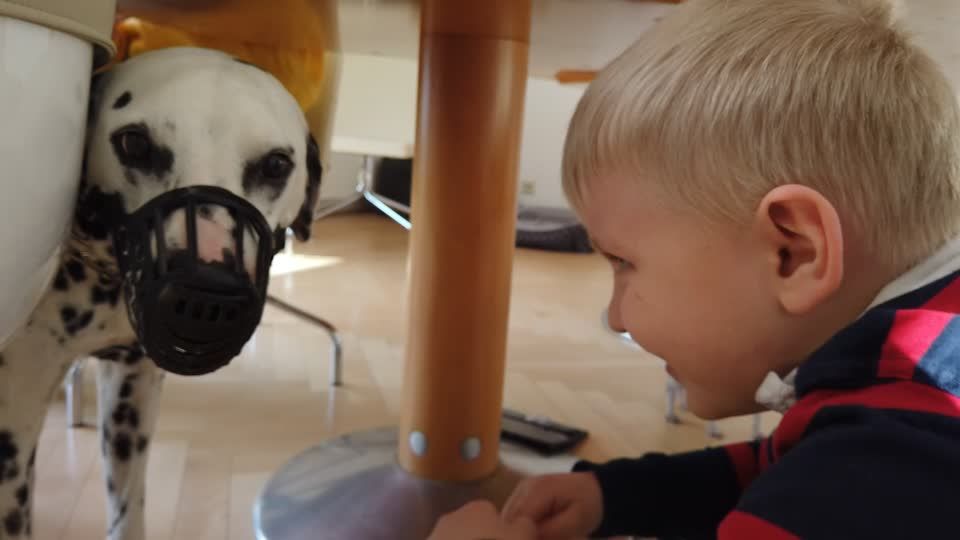The war in the Ukraine unsettles Ms. H. deeply. She can no longer sleep well, is very worried and has trouble concentrating at work. Job coach Reinhild Fürstenberg explains how she can find security, calm and trust in herself in these challenging times and how her work does not suffer from her worries.
By Reinhild Furstenberg
“We woke up in a different world today.” The sentence by the German Foreign Minister Annalena Baerbock went around the world and speaks to the heart of many. The sudden war massively challenges our sense of security. The force of the aggression, which hardly anyone thought possible, not only triggers a loss of control in many people, but also a feeling of existential insecurity. How safe are we if something like this can happen? What is peace, your own security, worth if others simply roll over you? But also: What does the current situation mean for me and my loved ones? How long will the war last and what else will happen?
Ms. H.* works as an accountant in a publishing house and feels very comfortable with her job and especially with her team. However, things have changed for her since the beginning of the war in Ukraine. Ms H. only fixates on her mobile phone: spellbound, she follows the news and developments and is paralyzed. She can no longer sleep and at work she is now unfocused, distracted and makes mistakes that she would not otherwise have had. She has even been asked about it. She is also very worried about her work colleague whose parents live in Ukraine and who is very concerned about this. Ms. H. has lost her sense of security over the past few weeks.
Together with Ms. H., I would like to strengthen her sense of security and self-confidence again, so that the currently justified fear can be a little quieter. And that is precisely what is important, because we can only think clearly and take care of ourselves again when fear is no longer paralyzing us.
Find security within yourself
First of all, I discuss with Ms. H. that it is completely normal to be affected and react emotionally to these special and bad events, it is a healthy reaction to unhealthy circumstances. She can also admit that she is afraid. That can be in such an extraordinary situation.
At the same time, it is important that worry and fear do not get out of hand and that we do not let them steer us. We should hold the helm in everyday life firmly in our hands. Even if the news is full of scary reports and the situation determines our thoughts and conversations. We may well be aware that the Ukraine conflict is part of our lives, but not everything. We therefore recommend that you also focus on other things – especially those that we can influence and control ourselves. Ideally, we do something good for ourselves every day that brings us joy or that we simply enjoy doing. This triggers pleasant feelings, stabilizes and strengthens.
What many have in common with Ms. H. is that they feel helpless and unable to do anything. So it’s good to see what can still be done, because doing it directly activates our self-efficacy, i.e. the power within us that nourishes our self-confidence and thus our feeling of self-confidence.
I think with Ms. H. what she can do specifically to improve the current situation for herself and ideally also for others. It occurs to her that she could get donations in kind or work in places with arriving refugees in the neighboring town. A friend of Ms. H. took in a woman who had fled the Ukraine, and perhaps she can also support her there. She is also thinking about how she can help her worried work colleague. Maybe a walk together during the lunch break or a meal and an open ear after work will do you good. This shifts the focus from being at the mercy to active action.
I also encourage Ms. H. to discipline the constant urge to read the news: twice a day, once in the morning and once in the late afternoon, is often enough. At best, she keeps the evening free of the topic in order to calm down, sleep well and be fit and strengthened for work the next morning.
I recommend that she not constantly engage in discussions about the Ukraine war at work. She doesn’t have to justify her thoughts or defend her stance. Even actively changing the topic in discussions may require some courage, but it is an important moment of self-care and differentiation.
But if there is a need and it helps the colleagues, Ms. H. and her team can call regular, short meetings in which the feelings and thoughts of the individual can be discussed. Then the topic has a fixed and also limited place.

What helps with anxiety
So that Ms. H. can concentrate on her work again, I give her further impulses on how to deal with her fear.
It is crucial to classify and understand the fears. Ms. H. is given concrete questions about this: Which of her fears is really real, what are her own thoughts of a catastrophe? What is it really about? And if something affects them, what can they do, how can they specifically proceed?
It is also more important than ever that Ms. H. now consciously cultivates her relationships and does not remain alone with her fears and perhaps even withdraws. Exchanging ideas and going through difficult times together strengthens us and tells us: We are not alone. We feel safe and protected.
Ms. H. could also create a contingency plan for her own reassurance that she can fall back on if the situation she is afraid of actually occurs. Such a plan can B. also include sitting down with the family and making decisions together. Finally, I talk to Ms. H. about the fact that in moments of fear it is helpful to ask yourself the following question: “Am I safe here and now, in this very moment?”
Because fearful thoughts comb the future for probable scenarios that can be dangerous for us. We are not in the here and now. The question “Am I safe here and now, at this very moment?” brings us back to the moment. Ms. H. finds out that the world she lives in has not really changed: she is healthy, has her job and friends, has enough to eat and everything else she needs.

The inner permission to live
Collecting tips on how to deal with her fear is very helpful for Ms. H. What is particularly powerful for her, however, is the inner permission that – despite the war in Ukraine – she can feel joy, laugh, celebrate her birthday and have fun. Maybe even more than ever. In uncertain times, we feel our own happiness more clearly than usual. Feeling grateful instead of feeling guilty has a positive effect on our vegetative nervous system and makes us feel content.
The good thing about it: Our brain has a hard time feeling two opposite feelings like fear and contentment at the same time. In this way we can create valuable breaks in which our nervous system can calm down and regenerate. Then it is also easier to perceive that apart from the war, not everything is in a state of emergency, but that much has actually remained as it is.
Finally, the feeling of security is subjective. And it’s learnable. It also helped Mrs. H. to understand the current situation as a learning process and so I encourage her to examine what gives her security in everyday life – and to do more of it.
Here are my tips summarized for you:
- Discipline your urge to read the news to twice a day. Keep the evening free of stressful topics. Issue push messages or message alerts on computers and mobile phones.
- Avoid arguments about the current situation. You do not have to argue or defend your opinion or perception of the situation. Get out if possible.
- Change the subject if it gets too much for you. You can take care of yourself and set boundaries.
- Be aware that a special situation has occurred, but not everything is in a state of emergency. Consciously perceive what remains.
- At best, we counter the feeling of powerlessness with activity. See how you can help in your living environment.
- If you are overwhelmed by thoughts of catastrophe scenarios, actively bring yourself back to the present: ask yourself whether you are safe now, in this moment.
- If you are afraid, make sure you break your pattern: while you are at work, go out into the fresh air or to the coffee kitchen. If you’re worried about sleeping at night, get up, sit on the sofa for a moment, read a few pages, and then go back to sleep.
- Soothe others who shake like you do, including at work. While you calm others down, your ears listen in: This is how you use another sensory organ that is directly connected to your brain.
- You don’t have to feel bad if you live your life parallel to the current situation. You can feel joy, laugh and enjoy your life at the same time.
- Allow yourself everything that is good for you.
* Case study from the consulting practice of the Fürstenberg Institute. The case was anonymized with the consent of the person concerned.
Source: Stern
Jane Stock is a technology author, who has written for 24 Hours World. She writes about the latest in technology news and trends, and is always on the lookout for new and innovative ways to improve his audience’s experience.




